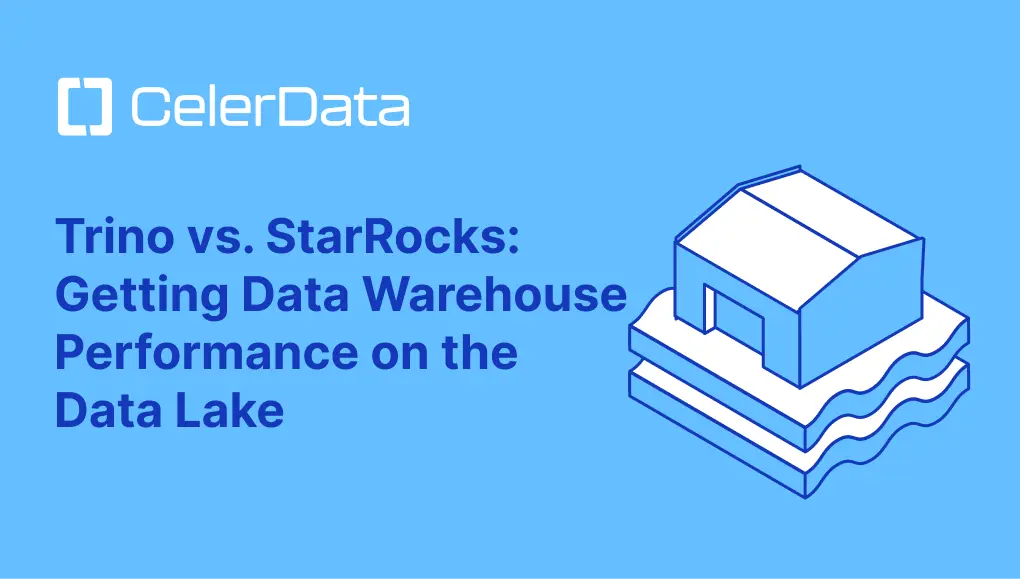
The Hidden Costs of Data Overload in Decision-Making

Join StarRocks Community on Slack
Connect on SlackUnderstanding Data Overload
Definition and Prevalence
What is Data Overload?
Data overload refers to the overwhelming amount of data that individuals or organizations encounter, which can hinder effective decision-making. In today's digital age, businesses collect vast amounts of data from various sources. This abundance of data can lead to information overload, where the sheer volume becomes unmanageable. As a result, decision-makers struggle to extract meaningful insights, impacting their ability to make informed choices.
How Common is Data Overload in Organizations?
Data overload is a prevalent issue in many organizations worldwide. A global survey conducted by Microsoft revealed that a significant number of companies experience challenges due to excessive data. Many business leaders report difficulties in managing data access and ensuring that relevant information reaches the right people at the right time. This problem affects organizations across different industries, highlighting the need for effective data management strategies.
Causes of Data Overload
Technological Advancements
Technological advancements have contributed significantly to data overload. Innovations in data collection and storage technologies enable organizations to gather more data than ever before. While these advancements offer opportunities for better decision-making, they also pose challenges in managing and analyzing the data effectively. Companies must adopt robust data management practices to prevent information overload and ensure that data access remains streamlined.
Information Proliferation
The proliferation of information across various platforms and channels further exacerbates the issue of data overload. With the rise of social media, online transactions, and digital communications, organizations face an influx of data from multiple sources. This information overload can overwhelm decision-makers, making it difficult to identify relevant data for strategic decision-making. Managing this data effectively requires a comprehensive approach that prioritizes data relevance and accessibility.
Hidden Costs of Data Overload
Reduced Productivity
Time Wasted on Data Management
Organizations often find themselves drowning in data. Employees spend countless hours sifting through vast amounts of information. This time-consuming process detracts from their core responsibilities. Instead of focusing on strategic tasks, they get bogged down in data management. The result? A significant drop in productivity. Companies must recognize this hidden cost and take steps to streamline data processes.
Inefficiencies in Decision Processes
Data overload can lead to inefficiencies in decision-making. When faced with too much information, decision-makers struggle to identify what truly matters. They may hesitate, second-guess, or delay decisions altogether. This indecision can slow down operations and hinder progress. Organizations need to develop clear strategies for managing data to ensure efficient decision-making.
Decision Fatigue
Mental Exhaustion from Excessive Data
Decision fatigue is a real consequence of data overload. Constantly processing large volumes of data can exhaust the mind. Decision-makers may feel overwhelmed and mentally drained. This exhaustion affects their ability to think clearly and make sound decisions. Companies should be aware of this issue and provide support to help employees manage information overload effectively.
Impact on Decision Quality
The quality of decisions suffers when individuals face information overload. With too much data to consider, decision-makers may overlook critical details. They might rely on shortcuts or make hasty choices. This can lead to poor outcomes and missed opportunities. To combat this, organizations must prioritize data relevance and ensure that decision-makers have access to the most pertinent information.
Financial Implications
Cost of Poor Decisions
Poor decisions can have significant financial implications. When decision-makers struggle with data overload, they may make costly mistakes. These errors can affect a company's bottom line and damage its reputation. By managing data effectively, organizations can reduce the risk of poor decision-making and protect their financial health.
Resource Allocation Challenges
Data overload can also complicate resource allocation. Decision-makers may find it challenging to determine where to allocate resources effectively. This can lead to inefficiencies and wasted resources. Companies must develop robust data management strategies to ensure that resources are allocated wisely and align with organizational goals.
Impact on Organizational Culture and Employee Well-being
Stress and Burnout
Employee Mental Health Concerns
Data overload significantly affects employee mental health. When employees constantly face excessive data, they experience stress and anxiety. This stress arises from the pressure to process and analyze vast amounts of information quickly. Employees often feel overwhelmed by the sheer volume of data they must handle. This mental strain can lead to burnout, affecting their overall well-being. Organizations must recognize these mental health concerns and implement strategies to support employees in managing data effectively.
Decreased Job Satisfaction
Information overload also impacts job satisfaction. Employees who struggle with data overload often feel dissatisfied with their work. They may perceive their tasks as unmanageable and frustrating. This dissatisfaction can lead to decreased motivation and engagement. Employees may feel that their efforts go unnoticed amidst the overwhelming data. To improve job satisfaction, companies should focus on creating a supportive environment that prioritizes data management and employee well-being.
Communication and Collaboration Issues
Information Silos
Data overload can create information silos within organizations. When departments or teams hoard data, it limits access to valuable information. This lack of transparency hinders effective communication and collaboration. Employees may struggle to obtain the data they need for decision-making. Information silos can lead to miscommunication and duplication of efforts. Organizations must encourage open data sharing and collaboration to break down these silos.
Misalignment in Team Objectives
Misalignment in team objectives often results from data overload. When teams receive conflicting or excessive data, they may struggle to align their goals. This misalignment can lead to confusion and inefficiencies. Teams may work towards different objectives, wasting resources and time. To address this issue, organizations should ensure that data is relevant and accessible to all team members. Clear communication and alignment of objectives are crucial for effective decision-making.
Practical Solutions to Manage Data Overload
Organizations face challenges with data overload, but practical solutions exist to manage this issue effectively. By adopting technological tools, cultural shifts, and strategic approaches, companies can enhance decision-making and improve productivity.
Technological Tools
Data Management Software
Data management software plays a crucial role in handling vast amounts of data. These tools help organizations organize, store, and retrieve data efficiently. They provide a centralized platform where employees can access relevant information quickly. By using data management software, companies can reduce the time spent searching for data and focus on strategic tasks. This approach minimizes information overload and enhances decision-making processes.
Automation and AI Solutions
Automation and AI solutions offer innovative ways to manage data overload. These technologies streamline data processing by automating repetitive tasks. AI algorithms analyze large datasets to extract meaningful insights. They help decision-makers identify patterns and trends, leading to informed choices. Automation reduces human error and increases efficiency. By integrating AI solutions, organizations can handle data more effectively and make better decisions.
Cultural Shifts
Promoting Data Literacy
Promoting data literacy within an organization empowers employees to understand and use data effectively. Training programs and workshops can enhance employees' skills in data analysis and interpretation. When employees become data literate, they can make informed decisions based on accurate information. This cultural shift reduces the impact of information overload and fosters a data-driven environment.
Encouraging Focused Decision-Making
Encouraging focused decision-making involves prioritizing relevant data over excessive information. Organizations should guide employees to concentrate on key data points that align with their objectives. By focusing on essential information, decision-makers can avoid the pitfalls of data overload. This approach leads to more efficient decision-making and improved outcomes.
Strategic Approaches
Prioritizing Data Relevance
Prioritizing data relevance ensures that decision-makers access the most pertinent information. Organizations should establish criteria for evaluating data relevance. By filtering out unnecessary data, companies can prevent information overload. This strategy helps decision-makers focus on critical insights, leading to better decisions and enhanced productivity.
Implementing Data Governance Policies
Implementing data governance policies provides a structured framework for managing data. These policies define roles, responsibilities, and procedures for data handling. They ensure data accuracy, consistency, and security. By establishing clear guidelines, organizations can manage data effectively and reduce the risk of information overload. Data governance policies promote accountability and transparency in data management.
Conclusion
Data overload presents significant challenges in decision-making. It impacts productivity, decision quality, and financial outcomes. Organizations must recognize these hidden costs. Managing data effectively becomes crucial. Practical solutions, such as data management software and AI tools, can mitigate the effects of information overload. Companies should prioritize strategies that enhance data relevance and accessibility. By doing so, they can improve decision-making processes and foster a healthier organizational culture. Emphasizing effective data management ensures that decision-makers access the most pertinent information, reducing the risks associated with data overload.

.webp)

